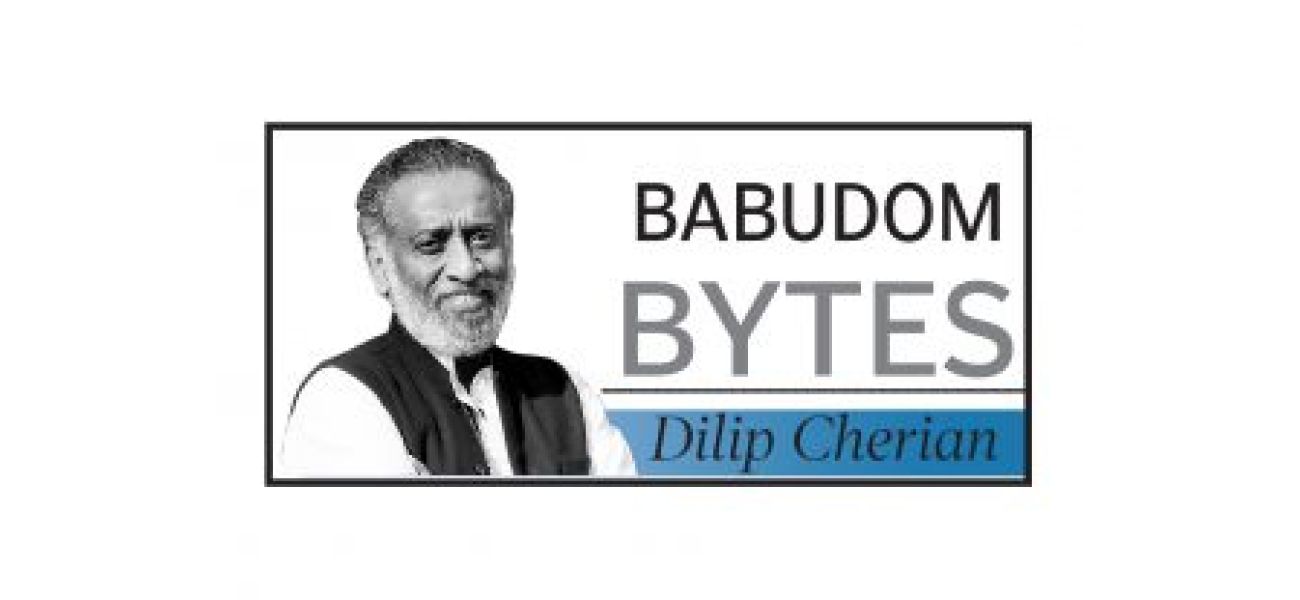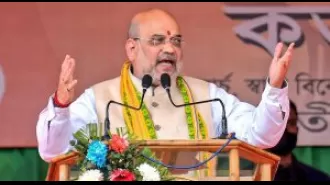The ability of a company or organization to control and influence the market, often resulting in higher prices and reduced competition.
The government is looking for new members of SEBI and sources say VS Sundaresan is a top contender, causing a buzz in the power corridors.
October 18th 2025.

Once again, the halls of power are buzzing with excitement, but this time it's not about taxes or budgets. The focus is on who will be the next to hold the reins of regulatory authority. According to sources, there are two clear frontrunners for the position of full-time members of SEBI, the capital markets watchdog. One is VS Sundaresan, a former Executive Director and current SEBI insider, while the other is Sandeep Pradhan, an officer from the Indian Revenue Service who is known for his strong enforcement tactics.
What's interesting to note is the high number of IRS officers who have applied for the position, clearly showing the allure of regulatory power. Sundaresan represents the traditional SEBI approach, with a steady and experienced demeanor that brings a sense of predictability. He knows the rulebook inside out and knows how to use it effectively. In a system where credibility is a top priority, his presence is reassuring. However, there is a risk of complacency setting in if regulators become too comfortable with their established ways. They may become too focused on processes and lose sight of the bigger picture.
On the other hand, Pradhan brings a different perspective with his strong enforcement background from the tax service. His approach is decisive and at times, strict and disruptive. This may come as a breath of fresh air for investors who are tired of seeing mild punishments for wrongdoings. However, there is a concern that if the revenue mindset takes over, the market may start to fear the regulator instead of trusting them.
The bigger question at hand is whether SEBI is slowly becoming like any other bureaucratic playground. In its early years, the organization had professionals from the market and academic backgrounds, but now it seems that the generalist babu is taking over. This shift may lead to a change in the regulator's temperament from being entrepreneurial to administrative.
If the government wants SEBI to keep up with the constantly evolving market, with advancements in technology and complex financial instruments, they need more than just hierarchical bureaucrats. The next person to hold this position should be chosen based on their agility, domain knowledge, and the courage to remain independent from both bureaucrats and brokers, rather than just their seniority or service background.
Moving on to a different topic, if there was ever a case study for irony, it would be that of Sanjiv Chaturvedi's. His case has been passed on to sixteen different judges, with each one recusing themselves from hearing it. What started as a legal proceeding has now turned into a never-ending relay race, with the baton being passed from one judge to another.
The latest judge to step aside is Justice Alok Verma of the Uttarakhand High Court, who did not provide a reason for his decision to recuse himself from hearing Chaturvedi's contempt petition. It's hard not to wonder why this case is being treated as if it's radioactive. After all, Chaturvedi is not just any other bureaucrat. He is a well-known whistleblower, who has exposed corruption in various projects and institutions, earning both admirers and enemies. He has faced consequences for his actions, including being transferred and facing inquiries. And now, it seems like he is stuck in a judicial limbo.
Those who dare to take on corrupt systems often end up isolated, and Chaturvedi's case is a perfect example of that. It's understandable for judges to recuse themselves if there is a risk of bias, but it would be better for the sake of public trust if they provided a brief explanation. Transparency is crucial in protecting both the litigant and the institution.
Despite all the talk about protecting whistleblowers, India's record shows that we prefer to celebrate them from afar rather than stand by them when it counts. Chaturvedi's long battle is not just a personal one, but also a test of whether our system still has space for honesty that makes it uncomfortable. At the very least, he deserves his day in court.
Moving on to a different issue, in other countries, every human life is valued regardless of their nationality. For instance, when an Indian tourist died in Portugal, the health minister resigned as a gesture of accountability. It's hard to imagine a similar scenario happening in India. Recently, dozens of people died from consuming toxic cough syrup that was exported under official supervision, yet no one in a position of power has taken responsibility for it. Our bureaucrats have perfected the art of being invisible when things go wrong. They are hailed as unsung heroes when things go right, and they are still "investigating" when things go wrong. The cough syrup tragedy not only took the lives of innocent children but also exposed the flaws in our regulatory system that relies on paperwork and plausible deniability. However, no one has resigned, and no one has been held accountable. The minister, the regulators, and the files remain untouched, probably gathering dust alongside expired drug samples.
In Portugal, a minister stepped down over one death, but in India, there is a high body count, and yet, no one seems to care. Perhaps this is what true immunity looks like, not from diseases, but from facing consequences.
What's interesting to note is the high number of IRS officers who have applied for the position, clearly showing the allure of regulatory power. Sundaresan represents the traditional SEBI approach, with a steady and experienced demeanor that brings a sense of predictability. He knows the rulebook inside out and knows how to use it effectively. In a system where credibility is a top priority, his presence is reassuring. However, there is a risk of complacency setting in if regulators become too comfortable with their established ways. They may become too focused on processes and lose sight of the bigger picture.
On the other hand, Pradhan brings a different perspective with his strong enforcement background from the tax service. His approach is decisive and at times, strict and disruptive. This may come as a breath of fresh air for investors who are tired of seeing mild punishments for wrongdoings. However, there is a concern that if the revenue mindset takes over, the market may start to fear the regulator instead of trusting them.
The bigger question at hand is whether SEBI is slowly becoming like any other bureaucratic playground. In its early years, the organization had professionals from the market and academic backgrounds, but now it seems that the generalist babu is taking over. This shift may lead to a change in the regulator's temperament from being entrepreneurial to administrative.
If the government wants SEBI to keep up with the constantly evolving market, with advancements in technology and complex financial instruments, they need more than just hierarchical bureaucrats. The next person to hold this position should be chosen based on their agility, domain knowledge, and the courage to remain independent from both bureaucrats and brokers, rather than just their seniority or service background.
Moving on to a different topic, if there was ever a case study for irony, it would be that of Sanjiv Chaturvedi's. His case has been passed on to sixteen different judges, with each one recusing themselves from hearing it. What started as a legal proceeding has now turned into a never-ending relay race, with the baton being passed from one judge to another.
The latest judge to step aside is Justice Alok Verma of the Uttarakhand High Court, who did not provide a reason for his decision to recuse himself from hearing Chaturvedi's contempt petition. It's hard not to wonder why this case is being treated as if it's radioactive. After all, Chaturvedi is not just any other bureaucrat. He is a well-known whistleblower, who has exposed corruption in various projects and institutions, earning both admirers and enemies. He has faced consequences for his actions, including being transferred and facing inquiries. And now, it seems like he is stuck in a judicial limbo.
Those who dare to take on corrupt systems often end up isolated, and Chaturvedi's case is a perfect example of that. It's understandable for judges to recuse themselves if there is a risk of bias, but it would be better for the sake of public trust if they provided a brief explanation. Transparency is crucial in protecting both the litigant and the institution.
Despite all the talk about protecting whistleblowers, India's record shows that we prefer to celebrate them from afar rather than stand by them when it counts. Chaturvedi's long battle is not just a personal one, but also a test of whether our system still has space for honesty that makes it uncomfortable. At the very least, he deserves his day in court.
Moving on to a different issue, in other countries, every human life is valued regardless of their nationality. For instance, when an Indian tourist died in Portugal, the health minister resigned as a gesture of accountability. It's hard to imagine a similar scenario happening in India. Recently, dozens of people died from consuming toxic cough syrup that was exported under official supervision, yet no one in a position of power has taken responsibility for it. Our bureaucrats have perfected the art of being invisible when things go wrong. They are hailed as unsung heroes when things go right, and they are still "investigating" when things go wrong. The cough syrup tragedy not only took the lives of innocent children but also exposed the flaws in our regulatory system that relies on paperwork and plausible deniability. However, no one has resigned, and no one has been held accountable. The minister, the regulators, and the files remain untouched, probably gathering dust alongside expired drug samples.
In Portugal, a minister stepped down over one death, but in India, there is a high body count, and yet, no one seems to care. Perhaps this is what true immunity looks like, not from diseases, but from facing consequences.
[This article has been trending online recently and has been generated with AI. Your feed is customized.]
[Generative AI is experimental.]
0
0
Submit Comment





